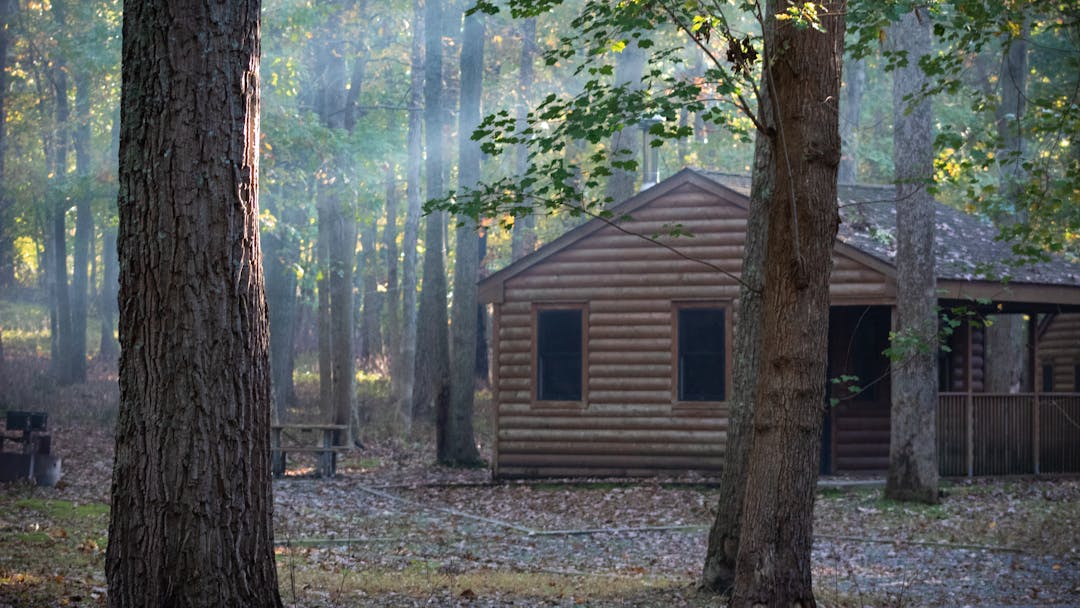Understanding Adverse Possession in Michigan
Michigan recognizes adverse possession, a legal doctrine allowing someone to acquire ownership of real property they’ve occupied for a specific period, even without a formal title.
The Statute: MCL 600.5801
The relevant statute governing adverse possession is MCL 600.5801 [MCL 600.5801], titled “Limitations of actions – real property.” It establishes time limits for filing legal actions regarding land ownership.
Subsection (4) is crucial, stating a 15-year limitation period “in all other cases under this section.” This implies that to gain title through adverse possession, one must continuously possess the land for fifteen years.
600.5801 Limitation on actions; time periods; defendant claiming title under deed, court-ordered sale, tax deed, or will; other cases.
Sec. 5801.
Elements of Adverse Possession
To successfully claim adverse possession in Michigan, the claimant (squatter) must demonstrate they possessed the property in a way that meets the following criteria:
- Actual Possession: This implies actively utilizing the land and regarding it as one’s possession. Infrequent or irregular use would not meet the criteria.
- Visible and Open: The possession should be evident to anyone observing the property. Fences, landscaping, or structures built demonstrate this.
- Notorious: The possession should be known or readily discoverable by the rightful owner. This doesn’t require the owner’s actual knowledge, but the use should be such that the owner could have discovered it with reasonable diligence.
- Exclusive: The possession should prevent others, including the rightful owner, from using the land.
- Continuous and Uninterrupted: Possession must be ongoing for the entire 15-year period. Gaps or breaks in possession could weaken the claim.
- Hostile: This doesn’t imply animosity towards the true owner. It simply means the possession is adverse to the owner’s rights, suggesting a claim of ownership independent of the owner’s permission.
We’ll Take That From You.
MCL 600.5821 addresses limitations for government entities [MCL 600.5821]. Government entities like municipalities and road commissions are generally not subject to adverse possession claims.
Additionally, the “hostile” element can be tricky. Permission from the true owner, even verbal, can disrupt the claim.
Consulting an attorney is highly recommended to assess the specific facts of a potential adverse possession case.
Potential Issues
Successfully establishing adverse possession allows the claimant to gain legal title to the property.
However, there are potential drawbacks. The process can be lengthy and require significant evidence. Additionally, if the true owner contests the claim, litigation can be costly.
Real Questions from Real Calls
Question: I have been living in a tent for 15 years in a Michigan State Park. Can I claim that property as my own under the adverse possession laws?
Unfortunately, you cannot claim ownership of the land in the Michigan State Park through adverse possession for a few reasons:
- Government Immunity: MCL 600.5821 exempts government-owned land from adverse possession claims [MCL 600.5821]. State parks fall under this category, meaning no matter how long you’ve resided there, you can’t acquire ownership through adverse possession.
While you’ve met the time requirement (15 years in Michigan), the other elements likely wouldn’t hold up either.
- Permission: Living in a state park typically requires permission, even if it’s just following camping regulations. This suggests you wouldn’t be able to establish “hostile” possession, a crucial element.
Here’s what you can do:
- Contact Park Rangers: Explain your situation to the park rangers. They might be able to offer alternative solutions, like designated camping areas or low-cost housing programs.
- Seek Legal Advice: An attorney specializing in property law can provide a more nuanced perspective on your situation. There might be other legal avenues to explore, depending on the specifics.
While claiming ownership through adverse possession isn’t possible in this case, there might be other options to consider.
Related Articles
Drones – What Drones?
Jersey cops launched into the night sky with catapults to throw dreamcatchers at the unknown drones to entangle their props and bring em down! Just kidding - I think.Darrr.. What drones? Those drones pose no threat there are no drones. That's just a balloon,...
Cash For Kids Judge Pardoned (The Kickback Club)
Biden’s commutation for Judge in ‘kids for cash’ scandal should anger the entire universe.Biden’s commutation in ‘kids for cash’ scandal. BY MICHAEL RUBINKAMUpdated 5:32 PM EST, December 13, 2024A judge implicated in one of the most notorious judicial scandals in U.S....
Trump plans – How does Cannabis Business fit in?
You work hard. Now get ready to work harder to prepare to give more.President Biden's administration has proposed the reclassification of marijuana from a Schedule I controlled substance to a Schedule III drug, which recognizes its medical benefits. This significant...
When Can Police Take Your Dash Cam?
You work hard. Now get ready to work harder to prepare to give more.In Michigan, police can take your dashcam footage in specific situations, primarily when they believe it could serve as evidence in a criminal investigation. Michigan law permits officers to seize...
More Posts

When Can Police Take Your Dash Cam?
You work hard. Now get ready to work harder to prepare to give more.In Michigan, police can take your dashcam footage in specific situations, primarily when they...

People who are going to need a Lawyer – November 12, 2024
People who are going to need a LawyerMan so drunk field sobriety tests were ‘too dangerous’ sentenced to life in prison for repeated DWI convictions‘Several terabytes’:...

Cambridge Analytica data breach comes before court
Oral arguments in Facebook v. Amalgamated Bank will beginThe justices are set to review securities law as they hear arguments in a significant case linked to the 2015...

Search and Seizure – Consent or Plain view
The Fourth Amendment was established to protect individuals from unreasonable searches and seizures, yet there are exceptions.In Michigan, understanding the concepts of...

A drunk driving investigation, a car wreck and a blood draw
A Case Summary: People v. Blake Anthony-William BartonOn October 11, 2024, the Michigan Court of Appeals issued a decision in the case People of the State of Michigan...

Police say they can tell if you are too high to drive
Police say they can tell if you are too high to drive. Critics call it ‘utter nonsense’Haley Butler-Moore sped up to pass a semi on the highway when she suddenly saw...

Cannabis – The Rise and Fall and Trail of Survivors Pile Up
Thieves make off with 1,000 pounds of premium flower in cannabis from a corporate grower in Michigan. Then, the GM sells off 650+ pounds to pay employees.The recent...

If you have an LLC you must comply or face fines and possible prison
You work hard. Now get ready to work harder to prepare to give more.If you own or are a member of an LLC.You have a deadline of January 1, 2025Call us we can take care...

Compounding Charges Laws in Michigan
Understanding Compounding Charges Laws in Michigan Compounding charges refer to the illegal act of accepting or agreeing to accept a benefit in exchange for not...

Harris unveils new proposals targeting black men with cannabis legalization
"Harris unveils new proposals targeting Black men as she looks to shore up Democratic coalition" CNNAmid the ongoing national issues, Vice President Kamala Harris...
















